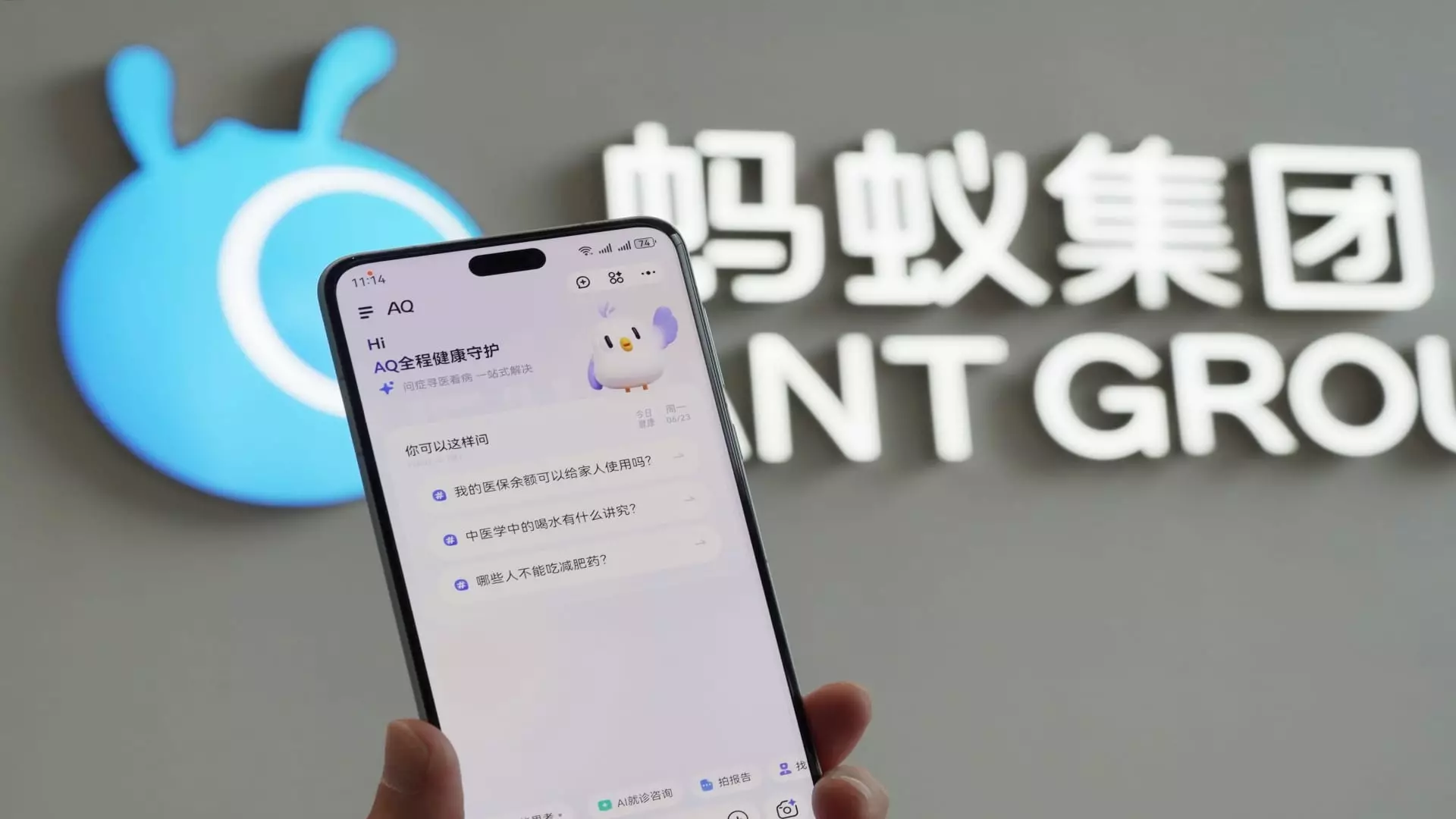In an era where technology and health converge, the aspirations of tech titan Ant Group are both ambitious and provocative. The company, a fervent offshoot of Alibaba, is betting its future on a new smartphone app named AQ—an acronym for “Answer Your Question.” This isn’t just a catchy moniker; it’s a bold declaration of intent in a market that desperately needs improved healthcare accessibility. The shift towards AI-driven solutions in health care signals a radical transformation not only within China but potentially on a global scale. While many are heralding this app as a beacon of innovation, one must question if such rapid advancements come with the social responsibility that the health sector requires.
The Integration of AI in Healthcare
Ant’s foray into healthcare is notably grounded in cutting-edge artificial intelligence, leveraging large language models provided by DeepSeek, Alibaba, and others. This technology is poised to disrupt traditional healthcare delivery by enabling users to engage with AI avatars resembling real medical professionals. Users can consult these avatars before securing diagnostic appointments—a feature that may alleviate some pressure from the overwhelming patient load in Chinese hospitals.
However, let’s not ignore the potential pitfalls here. AI in healthcare has stirred ethical debates about accuracy, patient privacy, and the extent to which we should rely on machine-generated advice. While Ant argues that these AI tools create efficiency, one could argue that the heart of healthcare—human empathy and understanding—might be overshadowed by a sterile influence of technology. What happens when financial considerations outweigh emotional support in times of health crises? When does accessibility compromise care quality?
A Significant Test Case for Global Expansion
The launch of AQ is a clear signal of Ant Group’s globalization aspirations, considering the app is reportedly being tailored for foreign markets. This is not merely a number game; it’s part of a strategic vision to license technology to third parties, potentially allowing the seamless integration of such solutions into varying healthcare systems. It’s essentially China presenting a case study for the rest of the world, but one must assess whether Western countries, often skeptical of Chinese tech, will embrace this approach so readily.
Crucially, the recent Cheung Kong Graduate School of Business report highlights how China boasts a vast database of health records, underpinned by a robust national health insurance system covering over 95% of its population. This unrivaled pool of data forms an excellent base for the development of AI. However, translating this successfully into less centralized systems found in many Western nations—characterized by fragmented health services—remains an uphill battle. Will this tech giant face regulatory roadblocks that could stifle its ambitious international rollout?
Anticipating Challenges as Industry Heats Up
With the entry of U.S. giants like Microsoft and Amazon into the AI health sector, the competition is quickly intensifying. China’s own megacorporations, from Tencent to Ping An Insurance, have long sought to monopolize this industry. The race to innovate will see them battling for market share and technological superiority. For the consumer, this is a thrilling proposition; however, it reveals systemic vulnerabilities, where profit margins can drastically affect service quality.
Moreover, Ant Group’s focus on monetization through services layered on top of their main offering raises significant concerns. As Alipay has evolved to offer functionalities spanning from digital appointments to grocery deliveries, the diversification might dilute the focus on health care, an area that demands unwavering dedication and ethical scrutiny.
Health Tech’s Future: A Double-Edged Sword
Overall, the developments led by Ant Group illustrate just how quickly technology is reshaping healthcare dynamics. Yet, the underlying sentiment should lean towards caution. This current wave of AI can enhance healthcare, but it must be tempered with rigorous ethical frameworks and a commitment to preserving human elements within medical practices. As more players enter this field, regulations and societal commitment will need to evolve equally swiftly.
While the potential for good is immense, it is essential that we don’t sacrifice quality of care at the altar of innovation and efficiency. The healthcare sector must operate not just as an industry but as a solemn duty—a privilege even—to serve the well-being of all individuals.

